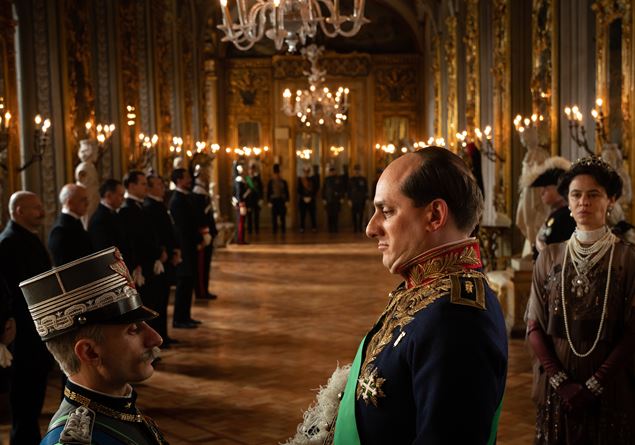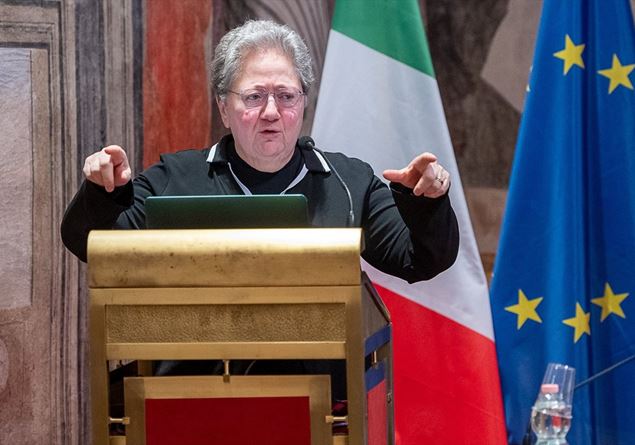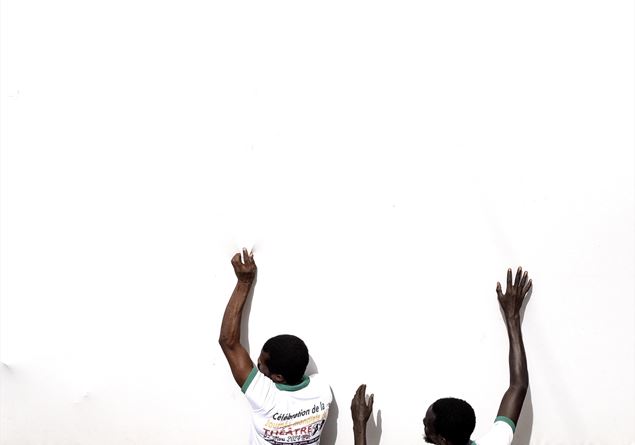Heralded by a great hype, “M.Il Figlio del Century” has finally arrived on Sky Atlantic and streaming on Now, the eight-episode series that tells the story of Benito Mussolini’s rise to power, taken from the first volume of the novel of the same name by Antonio Scurati, (whose splendid theatrical version by Massimo Popolizio had already been staged at the Piccolo in Milan). Anyone expecting a documentary reconstruction or a militant pamphlet will be disappointed. This series is not a history manual, but a sort of grotesque and ironic ride that transforms Mussolini into an almost surreal character, halfway between caricature and tragic monster.
Director Joe Wright (“Atonement” and “The Darkest Hour”) transforms the narrative material through a series of frenetic paintings in chiaroscuro or with the colors of the futurist canvases of Boccioni and Balla, including newsreels from the Istituto Luce, dystopian shots and even fantasy. The effect is a visual mosaic that at times recalls Wes Anderson’s touch in works such as “Grand Budapest Hotel”. Let’s say he uses the surreal to tell the cruelty of reality.
The common thread is violence. It starts from Piazzale Loreto, with the foundation of the Fasci di Combattimento, followed by the squadrist expeditions against farmers and workers, shown in all their ferocity, and ends with the Duce’s speech in Parliament on 3 January 1925 in which he takes responsibility for the Matteotti crime, in the total apathy of those who govern and of the king, effectively marking the beginning of the fascist dictatorship.
There is the “rival” Gabriele D’Annunzio, his peasant wife Rachele and his lover Margherita Sarfatti, to whom Mussolini owes everything, starting with the grotesque revival of the epic of the Roman Empire. The series, despite its baroque construction and historical license (in 1919 the violence of the socialists had nothing to envy of that of the fascists while in the series they appear like sacrificial lambs), does not betray the critical spirit of Scurati’s novel, laying bare the brutality that marked the Duce’s rise to power.
And the fact that the intent of the project is not just sterile historical reconstruction is made clear by Mussolini himself who in the prologue, as he will do in the rest of the series, addresses the viewer directly. The breaking of the so-called “fourth wall” that separates actors and spectators, used more and more often in TV series and films (the first I remember is Kevin Spacey in “House of Card” but also “Persuasion”, by Carrie Cracknell and many others) is an expedient used by the director to highlight all the negativity of the character. The protagonist Luca Marinelli winks at the camera from the beginning, asking for the spectator’s complicity: “Follow me, you too will become fascists” with all the ferocious irony that follows. Clear, direct, superficial messages, without particular introspection: «There is always a time in which people move towards simple ideas: the wise brutality of strong men.
It is not an anti-fascist film in the political or propagandistic sense. It is almost a “graphic novel” in which the Duce’s mask lives again as a grotesque, vile, caricatured character, poised between farce and terror, at times even comical (there is no shortage of salacious jokes). In some scenes, such as those of rallies or speeches in theatres, Mussolini, masterfully played by Marinelli, seems like Cetto La Quale or even the mayor of Roncofritto played by Paolo Cevoli. Moreover, in his fatal power there has always been a sort of vaudeville actor’s veneer: think of his studied poses from the balcony of Palazzo Venezia, with his theatrical and self-satisfied mimicry and that rolling of his eyes, not to mention his clothing. The director knows how to capture and amplify these aspects, as when he puts him on stage at the 1921 Congress of Fascism in Florence in an odd white aviator’s outfit. Therefore irony and comedy to describe the black soul of the character. Violence, the director seems to tell us, hides in the black soul of a clown dressed in uniform or with a black leather coat. But above all, the director wants to tell us, that violence can return. After all, dystopian films usually deal with “cautionary tales”, tales of caution that put us on the alert regarding the return of evil. This is the lesson of the TV series “M” is always lurking, because it can return, it hides like a bacterium or a virus in the folds of time, history, politics, society, man. Here is the sense of dystopia, of the graphic novel, of the dark atmospheres of Gotham City that envelop Milan and other cities, mixed with newsreels. Condensed in that chilling phrase uttered by the protagonist: “Look around you, we are still among you.”











